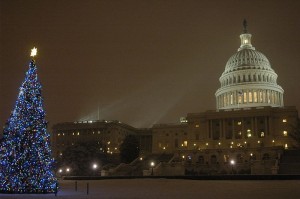Some Thoughts on Kiobel
A few weeks ago I wrote a post providing a brief background on Kiobel v. Royal Dutch Petroleum Co., the case in which the Supreme Court will likely decide whether the Alien Tort Statute confers federal jurisdiction over claims alleging corporate violations of customary international law. I’d like to offer a couple of additional thoughts on that upcoming decision.
Although not directly at issue in the litigation, Kiobel seems to raise an interesting question about the method by which courts go about ascertaining custom. A core principle of international law is that binding customary norms develop from “general and consistent practice that states follow from a sense of legal obligation.” According to Sosa v. Alvarez-Machain, the ATS provides for federal jurisdiction over civil actions by aliens who have alleged violations of a particular subset of these norms–i.e., those that are “accepted by the civilized world” and defined with a fairly high degree of specificity. Thus, determining whether the ATS provides jurisdiction in any given case often requires a judicial analysis of the nature, extent, and rationale of the practice that has allegedly given rise to the norm that the defendant has allegedly violated. In some cases–such as those involving piracy, offenses against ambassadors, and torture–the jurisdictional analysis is relatively easy because the underlying norm is widely accepted and well-defined. In others, it may be difficult to ascertain whether a given norm has the requisite levels of state acceptance and definitional precision.

